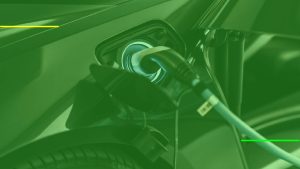Do EV's (Electric Vehicles) & Hybrids Require Maintenance?

New to owning an EV or Hybrid? Have questions about electric vehicle services and maintenance? One thing is the same as a combustible gas engine vehicle, they all need to go through an Inspection every year in the state of Pennsylvania.
Regardless of what kind of vehicle you have, they all need tires, windshield wipers, brakes, suspensions, light bulbs, fluids, Filters, wheel alignment, etc.
Below are some common questions people have as a new era of vehicles has entered our society.
Call us today to schedule your appointment 484-369-8342
Frequently Asked Questions About EV (Electric Vehicle Services) & Hybrid Service & Maintenance
Every 30 days:
- Check the tire pressure.
- Examine the tires for excess wear.
- Check the windshield washer fluid and fill if needed.
Every 7,500 miles:
- Have the tires rotated.
- Check the coolant level of the battery.
- Check the cabin heater, power inverter, accessory power, and charger modules.
- Inspect the brakes, steering, suspension, and chassis components for unusual wear or damage.
- Check the power steering and drive shafts for wear.
- Lubricate the door locks and inspect the gas struts for signs of suspension wear.
- Check the vehicle’s various light bulbs and replace if necessary.
At 15,000 miles:
- Replace the windshield wiper blades.
At 36,000 miles:
- Replace the cabin air filter.
At 75,000 miles:
- Replace the suspension gas struts.
- Drain and service the coolant circuits.
No. Vehicles that are powered by electricity alone will not need motor oil because they do not feature traditional gasoline-powered combustion engines. The purpose of motor oil is to lubricate the moving parts of an engine. If there’s no engine, no oil is needed.
Please note: If you drive a hybrid vehicle, it will still need regular oil changes.
Electric cars do have a transmission, but an EV transmission is a bit different. EV transmissions do not need multiple speeds. Electric motors produce the same amount of torque regardless of RPM within a specific range.
No. Electric vehicles and hybrids are equipped with a DC-to-DC converter. The purpose of a DC-to-DC converter is to recharge the 12-volt battery using power from the battery pack.
No, catalytic converters are also not needed to power an electric vehicle. The job of a catalytic converter is to remove the byproducts of internal combustion engines. Because an EV does not have an internal combustion engine, a catalytic converter is not required.
No fuel is burned to power an EV, so an exhaust system is not required.